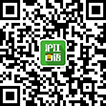考研英语阅读命题思路透析和真题揭秘(58)
Razitch‘s latest bock,Left Back: A Century of Failed School Reforms, traces the roots of anti-intellectualism in our schools, concluding they are anything but a counterbalance to the American distaste for intellectual pursuits.
主体句式:Razitch‘s latest bock traces the roots of anti-intellectualism.
结构分析:分析本句,首先可以忽略掉句中提到的书名,从而抓住句子的主干结构,即该书"traces the roots of anti-intellectualism in our schools",后面concluding这个现在分词表示的伴随状态起到进一步解释说明的作用,即概括了这本书的结论。其中"anything but"这个结构的意思是"决不"。
Hofstadter says our country‘s educational system is in the grips of people who "joyfully and militantly proclaim their hostility to intellect and their eagerness to identify with children who show the least intellectual promise."
主体句式:Hofstadter says...
结构分析:这个句子的复杂性在于从句套从句,容易让人混淆。首先,Hofstadter says后面的全部内容是一个宾语从句。这个从句中,people后面又加了一个who引导的定语从句用来具体说明这些人的观点。定语从句中的children又带了一个定语从句,具体说明前文提到的这些儿童的特点。
[全文译文]
Americans today don‘t place a very high value on intellect. Our heroes are athletes, entertainers, and entrepreneurs, not scholars. Even our schools are where we send our children to get a practical education--not to pursue knowledge for the sake of knowledge. Symptoms of pervasive anti-intellectualism in our schools aren't difficult to find. "Schools have always been in a society where practical is more important than intellectual," says education writer Diane Ravitch. "Schools could be a counterbalance." Razitch‘s latest bock,Left Back: A Century of Failed School Reforms, traces the roots of anti-intellectualism in our schools, concluding they are anything but a counterbalance to the American distaste for intellectual pursuits. But they could and should be. Encouraging kids to reject the life of the mind leaves them vulnerable to exploitation and control. Without the ability to think critically, to defend their ideas and understand the ideas of others, they cannot fully participate in our democracy. Continuing along this path, says writer Earl Shorris, "We will become a second-rate country. We will have a less civil society." "Intellect is resented as a form of power or privilege," writes historian and professor Richard Hofstadter in Anti-Intellectualism in American life, a Pulitzer Prize winning book on the roots of anti-intellectualism in US politics, religion, and education. From the beginning of our history, says Hofstadter, our democratic and populist urges have driven us to reject anything that smells of elitism. Practicality, common sense, and native intelligence have been considered more noble qualities than anything you could learn from a book. Ralph Waldo Emerson and other Transcendentalist philosophers thought schooling and rigorous book learning put unnatural restraints on children: "We are shut up in schools and college recitation rooms for 10 or 15 years and come out at last with a bellyful of words and do not know a thing." Mark Twain‘s Huckleberry Finn exemplified American anti-intellectualism. Its hero avoids being civilized--going to school and learning to read--so he can preserve his innate goodness. Intellect, according to Hofstadter, is different from native intelligence, a quality we reluctantly admire. Intellect is the critical, creative, and contemplative side of the mind. Intelligence seeks to grasp, manipulate, re-order, and adjust, while intellect examines, ponders, wonders, theorizes, criticizes and imagines. School remains a place where intellect is mistrusted. Hofstadter says our country‘s educational system is in the grips of people who "joyfully and militantly proclaim their hostility to intellect and their eagerness to identify with children who show the least intellectual promise." | 当今的美国人并不特别重视对知识的学习。我们心目中的英雄是运动员,演员,企业家,而不是学者。学校也只不过是我们把孩子送去获得实用教育--而不是为了知识而追求知识的地方。反知识主义现象在我们的校园里随处可见。 "学校总是处于一个社会中,在这个社会里,实用性总是高于知识性,"教育作家Diane Ravitch说,"学校能够成为一个平衡力量。"拉维奇最新出版的一本书《学校改革一个世纪的失败》追溯了学校里反知识主义的根源,得出结论是,学校根本不能平衡美国人对追求知识的厌恶。 但是学校能够而且应该是人们追求知识的地方。鼓励孩子拒绝脑力活动会使他们容易受到别人的利用和控制。如果没有能力进行批判性思考、捍卫自己的观点、以及理解他人的观点,他们就不能充分地参与到我们的民主政治中来。这样发展下去,作家Earl Shorris认为,"我们会变成一个二流的国家。社会文明度将降低。" "知识被人们看作一种权力或特权而受到憎恶,"历史学家Richard Hofstadter教授在他的《美国社会中的反知识主义》一书中写道。这本书获得了普利策奖,是关于美国政治、宗教和教育中的反知识主义的根源。Hofstadter说,从我们的历史一开始,我们的民主和民粹主义倾向就使我们摈弃一切和精英主义沾边的东西。实用性、基本常识、天分一直都被认为是比从书本中学来的任何东西都高尚的资质。 爱默生和其他一些超自然主义哲学家认为学校教育和高强度的书本学习会使孩子受到不自然的限制,"我们被关在学校和大学的背诵室里,一关就是10到15年,最后装了一肚子的文字却什么都不知道。"马克吐温的作品《哈克贝利·费恩》这样描述美国的反知识主义。这本书的主人公拒绝接受文明教化--上学认字--从而保留了自己的善良天性。 在Hofstadter看来,知识和天分是不同的。对于天生的能力我们不大愿意欣赏,但知识是我们头脑中批判性、创造性和沉思性的一面。天分对信息进行理解、应用、加工、并调整,而知识却会研究、思考、提问、总结理论、批判和想象。 目前学校里知识仍遭到怀疑。Hofstadter说我们国家的教育体系掌握在这样一些人手中,他们"毫不掩饰自己对知识的憎恶,对学习成绩最差的学生却表现出极大的认同,并且对自己的立场颇为得意。" |
猜你喜欢
- 出国留学中介前十名介绍 沪江是最好的选择
想要出国留学却没有时间没有精力去办理出国留学的手续,这个时候寻找一个好的出国留学中介就成了最好的办法,好的中介可以让自己更合理的去挑选自己喜欢的国家和学校,而且中介还有出国培训相关的内容,这...
- 日本动漫游戏:学校的圣域
feng社第9作第1弹《彼女のセイイキ(她的圣域)》,而系列的第2弹《妹的圣域》已于2015年08月28日发售,系列第3弹《学校的圣域》在2016年11月发售。
- 日本惊悚恐怖电影《裸体之夜:掠夺狂爱》
《裸体之夜2:掠夺狂爱》是由石井隆执导,竹中直人、佐藤宽子等领衔主演日本惊悚情色电影。该片讲述了主人公红次郎替年轻女孩加藤怜寻找叫“多绘”的救命恩人,结果踏入充满危机的“粉红”漩涡中。
- 秒变单身狗:哪些话不能对恋人说
恋爱初期总是美好而甜蜜的,然而两人长期处下来,就会发现对方的不足之处。生气起来口不择言,结果深深的伤害到两人的感情。这期给大家介绍一些对恋人可不能说的一些话。
- 日本礼仪:你真的会斟酒吗?
走进社会,我们不仅要在工作上努力努力再努力,还要一边学习一些社交礼仪。酒会作为一种常见的社交活动,学会其中的斟酒礼仪也是一门学问。今日,小编给大家整理了日本的斟酒礼仪供大家参考学习。


